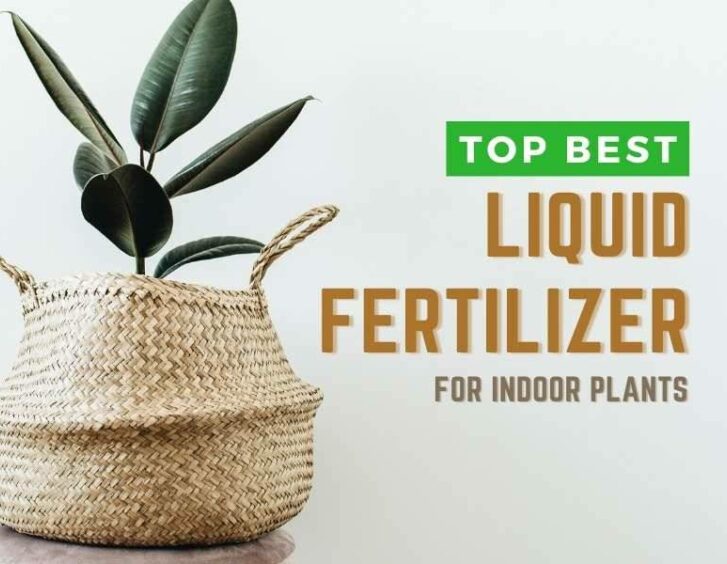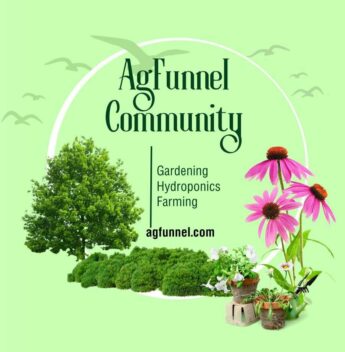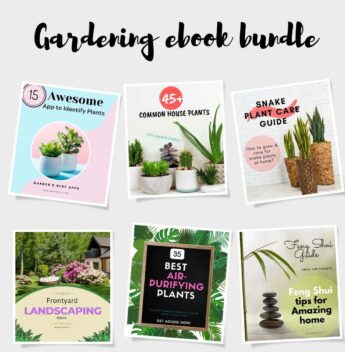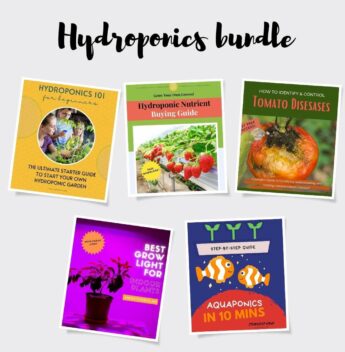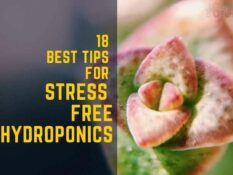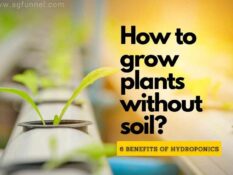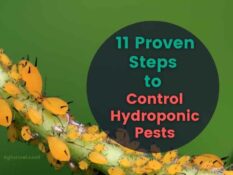Liquid fertilizers are liquid plant foods that can be used to feed plants indoors or outdoors. There are many different types of plant liquid fertilizers on the market, but not all of them are effective for indoor plants. In this article, we will discuss five of the best liquid fertilizer for indoor plants.
Overview of the best liquid fertilizer
Best For House Plants
Aquatic arts All-purpose Fertilizer
- 3-1-2
- All Purpose
- 8-ounce bottle lasts 6-months - 1 year |
Best For Bloom (Organic)
The Grow Co Organic Indoor Plant Food
- 3-1-2
- All Purpose
- 8 Ounces
- Best Natural Indoor Plant Fertilizer
Most Concentrated
Fox Farm Liquid Concentrate Fertilizer
- 6-4-4
- Contains Earthworm Castings, Norwegian Kelp & Essential Micronutrients
Indoor plants require specific care as opposed to outdoor ones because they do not receive as much light and require feeding extra nutrients to thrive. Indoor plant fertilizer aids in the closure of the nutrient gap and provides the plants with all they need to grow. So whether you're just starting with indoor gardening or a seasoned pro, read our top recommendations for the best liquid fertilizer for indoor plants.
Liquid fertilizers are often a better choice for indoor plants for a few reasons.
- Liquid house plant fertilizers are more easily absorbed by plants, as opposed to a powder or granular fertilizer, which can take a while to dissolve and be absorbed and
- The liquid fertilizer for indoor plants is less likely to damage plants than other fertilizers.
- These house plant fertilizers come in liquid form, which makes it easy to control the dosage, making them the perfect fertilizer for indoor plants.
The liquid fertilizer for indoor plants or any of the house plant fertilizer primarily contains Nitrogen (N), Phosphorus (P), and Potassium (K) (aka NPK), and a few contain other micronutrients. Nitrogen is responsible for leaf growth, Phosphorus aids in root development, and potassium helps with overall plant health.
With so many liquid fertilizers on the market, it can be hard to choose which one is right for you. That's why we've put together this list of the five best liquid fertilizer for indoor plants. We'll talk about what makes these liquid fertilizers stand out from the crowd and how they can help your plants thrive.
.
Things To Consider Before Buying Liquid Fertilizer For Indoor Plants
- The first thing you want to consider before purchasing liquid fertilizer is the NPK ratio. This will give you an idea of what the fertilizer is mostly made of and what it will be used for. For example, liquid fertilizer with a high Nitrogen content will be great for leafy plants experiencing little to no growth. On the other hand, liquid fertilizer with a high Phosphorus content will be great for root development in plants struggling to establish themselves.
- The second thing you want to consider is the type of plants you are growing. Different plants have different fertilizer needs, so it's important to choose a liquid fertilizer specifically designed for the type of plants you are growing. For example, if you are growing tomatoes, you will want to choose a liquid fertilizer high in Nitrogen and Potassium.
- And finally, you want to consider the size of your plants. If you have small plants, you will want to choose a liquid fertilizer with a lower concentration so that you don't damage the plants. Conversely, if you have large plants, you can choose a liquid fertilizer with a higher concentration.
Now that we've gone over some things to consider before purchasing liquid fertilizer let's look at the five best liquid fertilizers for indoor plants.
Best Liquid Fertilizer For Indoor Plants Review
There are several kinds of food for plants or fertilizer for plants. Below are the 5 best liquid fertilizer for indoor plants.
1. Aquatic Arts All-purpose House Plant Fertilizer (Best For House Plants)
Features:
- NPK Ratio: 3-1-2
- It can be used for indoor plants in pots, holders, and hangers.
- One teaspoon for every 2 cups of water — easy plant pot growing for up to 1 year
- Boost root and bloom growth
- It can be used for a whole range of common house plants such as Poinsettia, ZZ Plant, Aglaonema, Dioon, Fittonia, Hoya Plant, Plumeria Plants, Orchid, Snake Plant, Peace Lily, Begonia, Aloe Vera Plant, Calla Lillies, Philodendron Plant, Dieffenbachia, Croton Plant, Christmas Cactus, Indoor Cactus, Mums Rubber Plant.
Pros:
- It's super easy to use (mix a capful in with two cups of water)
Cons:
- Not good for starting seeds
2. Fox Farm Grow Big Liquid Concentrate Fertilizer (Most Concentrated)
Features:
- NPK Ratio: 6-4-4
- Grow big liquid fertilizer contains earthworm castings, Norwegian kelp, and essential micronutrients.
- It can be used on new plantings. Allows new plantings a few days to settle in, then begin using at the rate of two teaspoons per gallon of water every other time you water.
- You can also use it for foliar feeding your plants, applying to both sides of leaves, preferably early in the morning.
- Manufactured in the USA.
Pros:
- It can be used in a small hydroponic garden
- Works great on herbs
Cons:
- It promotes leaf growth rather than fruit/veggie growth, so not ideal for flowering.
3. The Grow Co Organic Indoor Plant Food (Best For Bloom)
Features:
- NPK Ratio: 3-1-2
- It contains mostly natural organic ingredients and works well with compost, worm castings, neem oil, and other natural products.
- Contains a high-quality, urea-free balanced combination of macro and micronutrients. The vitamin mix and blossom booster blend help develop robust roots and leaves.
- Excellent for indoor plants in various potting containers and a good liquid fertilizer for outdoor plants and organic gardening.
- It can be used in a pot containing gravel, moss, pebbles, perlite, pumice, lava rocks, and other soil mixes.
- It is good for common house plants such as air plants, fiddle leaf figs, snake plant, orchids, bonsai trees, spiders, a string of pearls, monstera, pothos, ZZ plant, bamboo, peace lily, African violet, aloe vera, prayer, hoya, mums, ivy, elephant ear, palm, fern, pilea, philodendron, dracaena, Chinese evergreen, succulents, cactus, jasmine, money tree, other hanging and trailing plants, terrarium plants, tropical plants and many more!
Pros:
- It is a natural plant fertilizer.
- An ideal liquid organic fertilizer for flowers too. An easy-to-use liquid fertilizer for flowering.
Cons:
- A little too pricey for a small bottle, especially if you have multiple plants to feed.
4. AgroThrive All-Purpose Organic Liquid Fertilizer (Best Organic)
Features:
- NPK ratio: 3-3-2
- OMRI, CDFA, and WSDA listed for organic gardening
- Derived from organic fish and grain.
- Formulated for lawns, vegetables, greenhouses, herbs,
- Activates indigenous micro-flora in soil and helps nutrient release
- Promotes vigorous root and foliar growth and improves plant disease resistance.
- Convenient liquid concentrate in a bottle; mix 2oz – 4oz with 1 gallon of water and apply to the soil.
Pros:
- It stays liquid even when cold and disperses easily in cold water. So it is easy to apply.
Cons:
- It is very effective on tomatoes but not as well on melons and summer squash.
We hope this post has helped you identify the proper liquid fertilizer for your houseplants. Happy gardening!
Read more about "How To Choose The Right Hydroponic Fertilizer?"
5. EZ-gro Citrus Tree Fertilizer (Best For Citrus)
Features:
- Perfect for lemon, lime, orange, grapefruit, mango, and kumquat. Dwarf or large varieties, with or without seeds. It gives indoor and outdoor plants the nutrients they need to bear a larger quantity of abundant, healthy fruit.
- It is infused with a micronutrient package that delivers the optimal nutrition for plants in the citrus group.
Pros:
- Fertilizer supplies high-grade nutrients to the root.
Cons:
- The product is a little expensive.
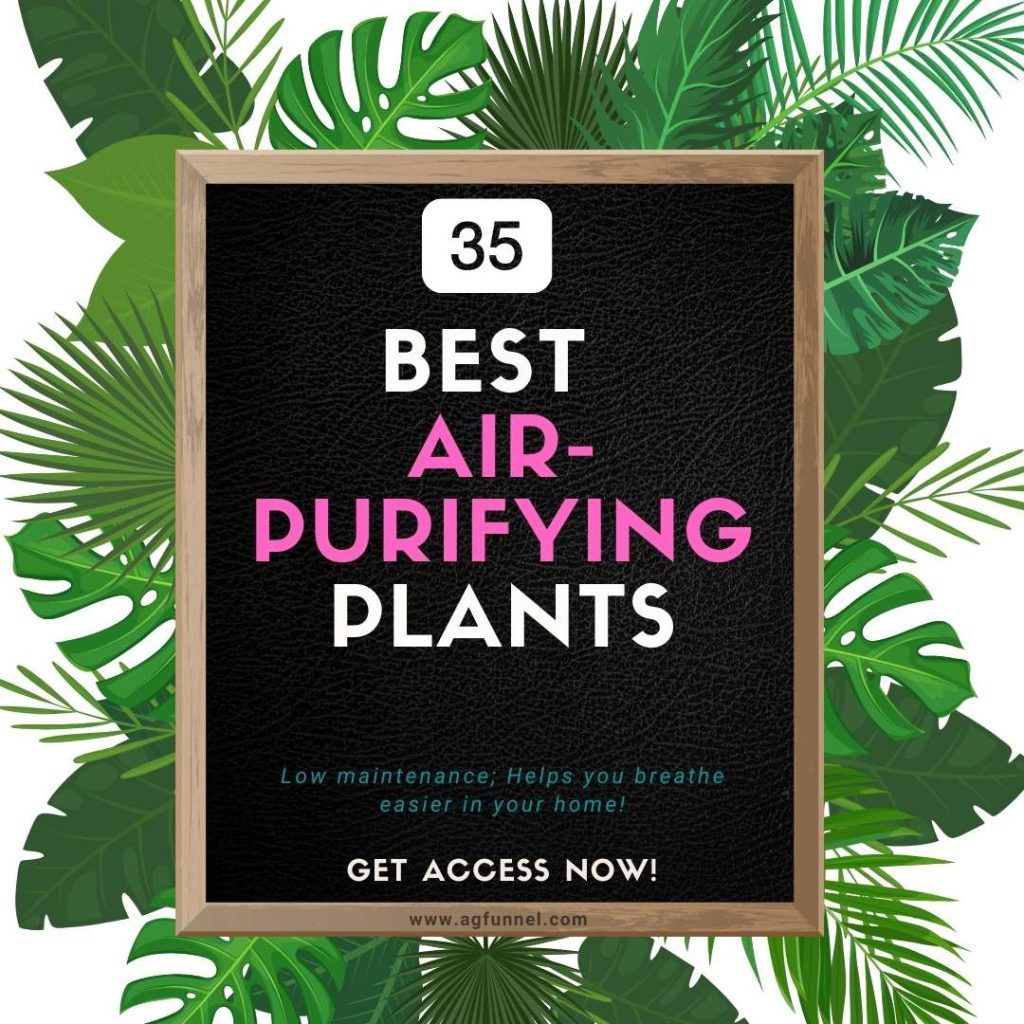
35 best air-purifying plants for your health and better indoor air quality
FAQs
What liquid fertilizers are good for houseplants? What are some of the best liquid fertilizers for indoor plants?
Are you wondering, "which liquid fertilizer is best for my houseplant?". Well, some of the best liquid fertilizers for indoor plants include Aquatic arts All-purpose House Plant Fertilizer, The Grow Co Organic Indoor Plant Food, Fox Farm Grow Big Liquid Concentrate Fertilizer, etc. You can also use fish emulsion, seaweed extract, and compost tea. These organic fertilizers provide a range of essential nutrients that help promote healthy growth in indoor plants.
What are the benefits of using liquid fertilizers for houseplants?
Liquid fertilizers are good for houseplants because they give the plants essential nutrients in an easy-to-absorb liquid form. Liquid fertilizers are also easy to use; mix them with water and apply them to the soil of your houseplants. Liquid fertilizers are a great alternative to granular fertilizers, which can be difficult to control the dose of or apply homogeneously in the soil.
How do you use liquid fertilizers for houseplants? How do I apply liquid fertilizer to my houseplant?
Mix the fertilizer with water in a watering can or spray bottle to use liquid fertilizers for houseplants. Then, apply the mixture to the soil of your plants, being sure to get it into the root zone. You may need to adjust the dosage depending on the size and type of your plants. You can also use liquid fertilizers as a foliar spray, giving your plants essential nutrients directly through their leaves. But there may be a risk of burning if applied in high dosage.
Are liquid fertilizers bad for plants? What are the drawbacks of using liquid fertilizer on my houseplant?
No, liquid fertilizers are not bad for plants. Liquid fertilizers can be a great way to provide essential nutrients to your plants in an easy-to-use form. However, it is important to note that liquid fertilizers should not be used as the only source of plant nutrition. You should also provide your plants with water, light, and air to ensure optimal growth.
Why would I use liquid fertilizer on my houseplant instead of a granular one?
Liquid fertilizers offer several benefits over granular fertilizers for houseplants. Liquid fertilizers are easy to use and give plants essential nutrients in an easily absorbable liquid form. Liquid fertilizers are also less likely to cause burns on the leaves of plants than granular fertilizers. And finally, liquid fertilizers are easier to mix and apply uniformly in the soil than granular fertilizers.
Which Liquid Fertilizer Works Best with Plant Humidifiers?
When it comes to plant humidifiers, it's essential to compare plant humidifiers features to determine which liquid fertilizer works best. Factors such as misting intensity, coverage area, and ease of use are critical in finding the right fertilizer for your plant humidifier.
What is the best liquid fertilizer for lawns?
One of the best liquid fertilizers for lawns is 16-4-8 Lawn Food Quality Liquid Fertilizer. This liquid fertilizer comprises a blend of nitrogen, phosphorous, and potassium, essential nutrients for healthy lawn growth. 16-4-8 Lawn Food is easy to apply, and many have claimed to see immediate positive results after using it.
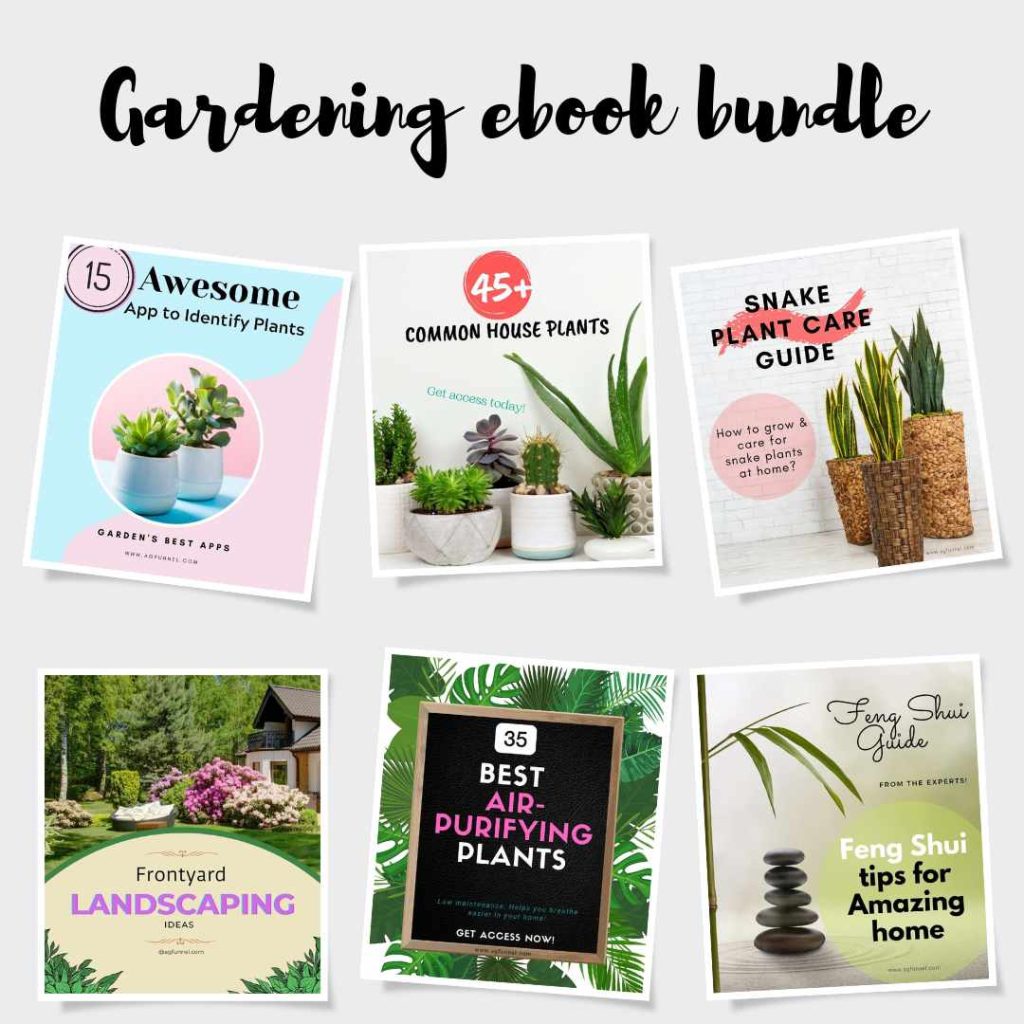
How to master gardening? Download these essential home and gardening ebooks today!


